
Dwyane Wade ‘tried to break up’ with Gabrielle Union after fathering baby with another woman
Dwyane Wade has revealed that he initially “tried to break up” with Gabrielle Union, before telling her that he fathered a child with another woman. In a recent appearance on Shannon Sharpe’s Club Shay Shay program, the former NBA star, 41, reflected on how he told his now-wife about his son, Xavier Zechariah, who he welcomed in 2013 with Aja Metoyer when he and Union were broken up. He started off by recalling how scared he was to tell Union about him and Metoyer before the news went public. “You know that this is going to hurt someone you’ve been building a relationship and life with,” he said. “You gotta sit with you and you gotta sit with this person if this is who you’re going to be with. I had to sit with my wife and have this conversation.” He went on to praise the Bring It On star for standing by his side, as he told her about having his son in the middle of his busy basketball career. “I couldn’t have gotten through that moment without her sticking with me,” the Olympian said. “We were in the playoffs, I think we were even going into the finals. That was a rough time for me…You got a lot on your mind. You’re keeping something from people you love. It’s heavy.” Wade then confessed that when he first had that conversation, he tried to avoid bringing it up, and even attempted to end things with the actor. “I tried to break up with her. Like: ‘Hey things have been bad lately, we’ve been having a little distance in our relationship anyway,’” he recalled. “I tried all of that.” However, he said that Union “kept showing up” for him, and they continued moving forward. He also acknowledged that since welcoming Xavier, his relationship with his wife “hasn’t been perfect,” before noting that they still “go to therapy”. “We’ve been to therapy, we’ve had shouts about it,” he said, referring to how he’d fathered his son with Metoyer. “We’ve had regular conversations. And so, it’s going to continue to be something that I have to work at and work on. It doesn’t go away because years come, or because I say: ‘Sorry.’” Elsewhere in the interview with Sharpe, Wade also expressed that he’s had concerns for Xavier, explaining that “it’s hard” for his child to be associated with the headlines that came from his parent’s relationship. “It’s going to always be there. He’s done nothing. It’s a stain that’s on him for no reason,” the former Miami Heat player said. After noting that he and his wife are either “going to get through it” or “ain’t going to get through it”, he emphasised that he’s still continued to think about his nine-year-old son, who already “has a negative impact next to his name”. “He hasn’t even had a chance to accomplish something, and he already has a negative next to his name because of how he was brought into this world,” he said. However, he still expressed his gratitude for his family and acknowledged that they’ll “get through” challenges together. Union and Wade went on to get married in 2014, before welcoming their daughter, Kaavia, via surrogate in 2018. In addition to his child with Metoyer, Wade shares two children, Zaire, 21, and Zaya, 16, with ex-wife Siovaughn Funches. He’s also the legal guardian of his nephew, Dahveon Morris, 21. This isn’t the first time Wade has recalled how he told Union about his child with another woman. During his 2020 ESPN documentary, Wade: Life Unexpected, he first described how difficult it was to have that conversation with his now-wife. “Hardest thing I’ve ever had to do is man up and tell Gabrielle Union that I’ve had a child with somebody else. I couldn’t sleep. I wasn’t eating,” he said during the documentary, as reported by Entertainment Tonight. “When you hold something in that you know is going to come out and you have this information and you know it’s gonna f**k somebody’s life up, that you care about, that you love, if it don’t hurt you, then you’re not human.” In her 2021 book, ​You Got Anything Stronger?, Union first opened up about the “trauma” of her husband having a baby with another woman. “It should go without saying that we were not in a good place at the time that child was conceived,” she wrote “But we were doing much better when he finally told me about the pregnancy. To say I was devastated is to pick a word on a low shelf for convenience.” Despite her devastation, the actor acknowledged that there have been countless people who have been upset with her decision not to talk about the birth of her husband’s son, with Union explaining that she had “not had words”. “There are people – strangers I will never meet – who have been upset that I have not previously talked about that trauma. I have not had words, and even after untold amounts of therapy I am not sure I have them now,” she wrote. Read More Dwyane Wade recalls daughter Zaya Wade being ‘scared’ and hiding from him after coming out Gabrielle Union reveals how she conquered her fear of being a ‘bad mom’ Dwyane Wade says his family left Florida because anti-trans laws made it so they ‘would not be accepted’ Katherine Heigl opens up about decision to raise children in Utah Researchers link ultra-processed food and drink to risk of depression in women Shakira opens up about co-parenting her two sons with ex Gerard Piqué
2023-09-23 00:16

Strictly’s Amy Dowden shares ‘hardest step’ of cancer journey
Amy Dowden has shared “the hardest step” of her cancer journey with fans as she shaved her head. The Welsh dancer, who has competed on Strictly Come Dancing since 2017, was diagnosed with breast cancer in May. She is currently undergoing chemotherapy. Dowden, 33, has been documenting the journey for her fans, and recently described in a candid video how she “cries every day” as her hair falls out due to treatment. On Thursday (21 September), with Dowden over halfway through her chemotherapy, the dancer made the brave decision to “take control” and shave her head. In a montage shared on Instagram, Dowden was shown dabbing at her eyes while her “loved ones” cut off chunks of her hair down to a short, cropped style. The remaining hair was then shaved off, with the Strictly star growing more emotional and pausing to cover her face with her hands. However, she was in the end shown admiring the end results in the m “This too shall pass,” Dowden wrote, before describing the haircut as “the hardest step so far”. “I tried my best to save it. I know it’s only hair but these past few months I’ve had what feels like so much taken away from me that has made me not feel like Amy. I’m missing every possible aspect of dancing. I just wanted to keep my identity with my hair and I tried telling myself it wouldn’t go. But I would dread the pain of waking up to the shredding everyday.” She continued: “I’ve not been able to take control of this journey so far, but as you can see with some of my loved ones I took the courage and CONTROL. “It’s going to take some time to get use to and learn to love and embrace but, I’m now focusing – not on the hair I’m losing but the hair I’m going to get back and the happy dancing, tea lover who talks way to fast whilst rolling every rrrrr who is still there inside with or without hair!” Dowden said that she could now “see the finish line” after shaving her head, explaining: “This for me was a hurdle I couldn’t even bring myself to think or speak about. I’ve done it and I’ve also crossed the halfway chemo line! I’m feeling empowered and positive!” Dowden’s fellow Strictly pro Dianne Buswell commented: You are still all the things you were before, just with added courage, strength and determination. One thing about you is that you don’t let anything take over! “I cannot wait to have you back on the dancefloor with us chatting away, making endless cups of tea! We all love you so much and I’m such a proud friend.” Due to her treatment, Dowden has not been given a professional partner during this series of Strictly Come Dancing. However, the team paid tribute to Dowden during Saturday (16 September) night’s launch show. Host Tess Daly called Dowden their “Welsh dragon” and explained that she would be missing “the start of the series”. Strictly Come Dancing continues Saturday 23 September at 6.15pm on BBC One. Read More Strictly’s Bobby Brazier: ‘I don’t think happiness or fulfilment lies in what TV show I’m gonna do’ Strictly’s Amy Dowden says she ‘cries every day’ as she opens up on losing her hair during cancer treatment Strictly Come Dancing’s biggest stars this year are 50 plus – it’s refreshing to see Stacey Solomon leads tributes to cancer campaigner Nicky Newman who has died aged 35 Is a four-day week a good idea? | You Ask The Questions Yoghurt could be the cure for bad garlic breath, study finds
2023-09-22 16:52
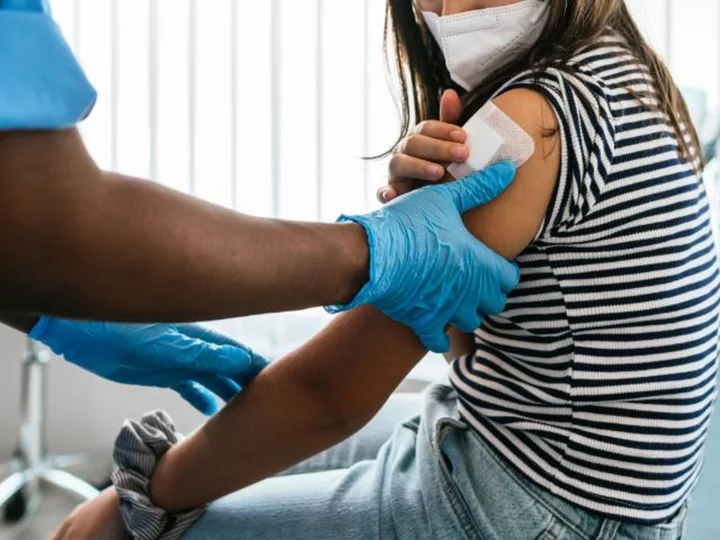
Half a million children and families regain Medicaid coverage
Some 500,000 children and families have had their Medicaid coverage reinstated after many states improperly terminated their enrollment because of a systems issue, the Centers for Medicare and Medicaid Services said Thursday.
2023-09-22 02:52

Could bats hold the secret to beating Covid and cancer?
Bats could hold the key to unlocking new ways to combat cancer, a new study suggests. A paper published by Oxford University Press, looks at the rapid evolution of bats for their abilities to both host and survive infections such as Covid-19 as well as cancer. The animals are known to have a strong immune system which helps fight off many viruses and diseases. These mammals are also thought to have played a role in the emergence of Covid-19 and scientists say such characteristics are interesting to investigate due to the implications it might have on human health. According to the research, understanding the mechanisms of the bat’s immune system that allows these animals to fight off viral infections – may pave the way to understanding how to prevent disease outbreaks from animals to people. To conduct the study, researchers sequenced the genomes of two bat species - the Jamaican fruit bat and the Mesoamerican mustached bat. The team used advanced technology from Oxford Nanopore Technologies and bat samples collected by the American Museum of Natural History in Belize. They then compared the bat genomes to those of other mammals. The results revealed that bats possessed genetic adaptations in proteins which are related to DNA repair and cancer suppression. It was found that bats had adaptations in six DNA repair-related proteins and 46 cancer-related proteins. The study also found that bats had more than double the number of altered cancer-related genes compared to other mammals, which provided further evidence that they have the ability to suppress cancer. “By generating these new bat genomes and comparing them to other mammals we continue to find extraordinary new adaptations in antiviral and anticancer genes,” said the paper’s lead author, Armin Scheben. “These investigations are the first step towards translating research on the unique biology of bats into insights relevant to understanding and treating ageing and diseases, such as cancer, in humans.” The results open up new paths for understanding and studying the links between cancer and immunity, which offers hope that these insights from bats might possibly lead to new treatments for human illnesses. According to the United States Department of the Interior, there are over 1,400 species of bats worldwide and are mostly found in extreme deserts and polar regions. In the US and Canada, there are about 45 species of bats. Read More British bats ‘can help identify coronaviruses with potential to infect humans’ Coronavirus origins still a mystery 3 years into pandemic Groundbreaking migraine treatment offers ‘new hope’ for patients World Sepsis Day: What is the condition and its symptoms? Duran Duran’s Andy Taylor says he’s ‘asymptomatic’ after end-of-life diagnosis
2023-09-20 22:26
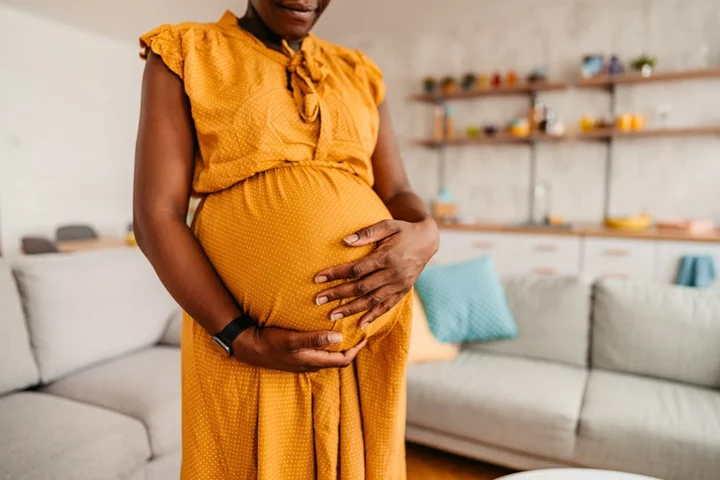
Placenta abnormalities could be the reason for miscarriages, study suggests
A new study has found that placenta abnormalities could be the reason for miscarriages. In the United States, there are approximately 5 million pregnancies per year with 1 million ending in a miscarriage and over 20,000 ending in stillbirth, according to a paper published in the journal Reproductive Sciences. “To have a pregnancy loss is a tragedy. To be told there is no explanation adds tremendous pain for these loss families,” said senior author of the paper and research scientist at Yale School of Medicine, Dr Harvey Kliman “Our goal was to expand the current classification systems to decrease the number of cases that remained unspecified.” For the study, researchers worked to create a classification system for miscarriages based on a test that examines a sample of the body’s tissues – known as pathologic examination. The team looked at a series of 1,527 single-child pregnancies that ended in miscarriage, and the data was then sent to Yale for evaluation. After excluding cases without adequate material for examination, 1,256 placentas from 922 patients were examined. Of these, 70 per cent were miscarriages and 30 per cent were stillbirths. By adding the explicit categories of “placenta with abnormal development” (dysmorphic placentas) and “small placenta” (a placenta less than the 10th percentile for gestational age) to other incidents such as cord accident, abruption, thrombotic, and infection – researchers were able to determine the results of 91.6 per cent of the pregnancies, including 88.5 per cent of the miscarriages and 98.7 per cent of the stillbirths. The most common results for unexplained miscarriages were dysmorphic placentas (placenta with abnormal development) which was around 86.2 per cent. For stillbirths, there was 33.9 per cent due to a small placenta. “This work suggests that the over 7,000 small placentas per year associated with stillbirths could have been detected in utero — flagging those pregnancies as high risk prior to the loss,” said Dr Kliman. “Likewise, the identification of dysmorphic placentas may be one way to potentially identify genetic abnormalities in the almost 1 million miscarriages that occur in our country every year.” He said having a definite explanation “for a pregnancy loss helps the family understand that their loss was not their fault, allows them to start the healing process, and, when possible, prevent similar losses — especially stillbirths — from occurring in the future.” When asked what the most effective way might be to prevent stillbirths, Dr Kliman responded, “Measure the placenta!” Read More 'Please, keep beating little heart': Man gives raw account of wife's miscarriage and fears for new unborn child Woman who had six miscarriages celebrates pregnancy with rainbow baby photoshoot Miscarriage: The loneliest grief of all Nearly a fifth of parents fear children will ignore health issues while at university Brits feel their mental health declining due to cost of living crisis How often should you wash your pyjamas?
2023-09-19 23:50
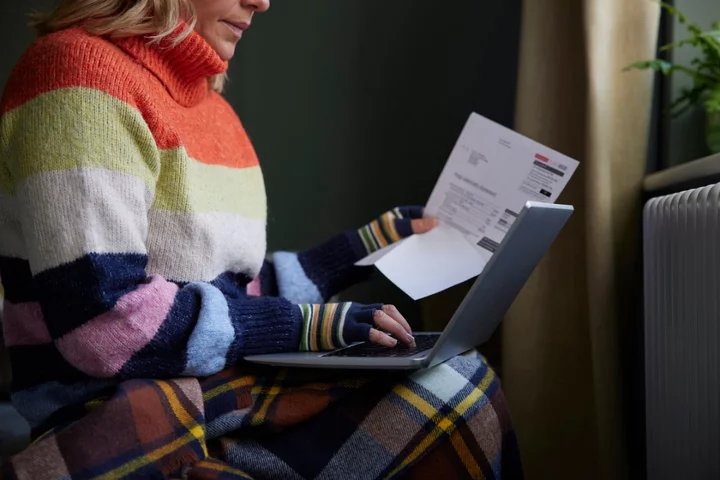
Brits struggle with mental health due to cost of living crisis
People in Edinburgh, Leicester and Glasgow are struggling the most with their mental health - due to the cost of living crisis. A poll of 2,000 adults found 27 per cent have really taken a hit when it comes to their wellbeing, because of a lack of finances. Newcastle, London and Leeds are other key cities where people are most affected. Cutting down on socialising, gym memberships and nutritious food to save money are reasons why so many feel disheartened and worried about their mental wellbeing. And 40 per cent are dreading the winter as they are unsure if they will be able to afford energy bills to heat their home. The survey was commissioned by British Gas, which is working with Professor Green to raise awareness of the struggles so many are facing and highlight the free support available in the new phase of the British Gas Post Office Pop-Ups. The musician and mental health advocate said: “As a parent your first instinct is to protect and provide, and when you’re doing everything you can, and that’s still not enough, it has a profound impact on your mental health. “Shame, stigma and fear can keep people from speaking up for help, but it’s the best thing you can do – for yourself, your family and your community. “Stress and anxiety breed in uncertainty so I really encourage you to visit a British Gas Post Office Pop-Up or contact the British Gas Energy Trust to help you gain confidence in, and control of, your future.“ The research found 14 per cent of adults are cutting back on how often they shower to lower their bills, and 21 per cent aren’t buying birthday gifts for loved ones. One in 20 (five per cent) say their kids are missing out on new toys. Just over half (55 per cent) believe their mental health would definitely improve if they were more financially stable. People in Manchester were found to be most likely to skip using heat or electricity to keep their homes warm. But those in Edinburgh were most likely to report that they have had issues with money that have led to incurring additional debt, like credit cards. Only 27 per cent of all adults polled via OnePoll are confident they are accessing all the benefits they may be entitled to when it comes to support with their energy bills. One in 10 also believe the rising cost of energy has caused them a great deal of additional stress. And 25 per cent baldly state they are expecting to struggle to pay their energy bills through the rest of the year. Nearly the same amount (24 per cent) said the current cost of living crisis has been just as bad for their mental health as the Covid-19 pandemic. British Gas Energy Trust CEO Jessica Taplin said: “Debt and money stresses are debilitating, which is why we are delighted to be offering money and energy advisors funded by us in Post Offices across the country. “Working with an artist like Professor Green can really help raise awareness, and let people know it’s good to talk about the things that are worrying them.” Read More Voguewashing London Fashion Week won’t pay the wages of Britain’s young fashion designers What is happening to local government finances and why are councils struggling? ‘School staff seeing more students who do not have enough dinner money’ Nearly a fifth of parents fear children will ignore health issues while at university How often should you wash your pyjamas? ‘My baby’s blue eyes drew praise – but their colour was a warning sign’
2023-09-19 22:49
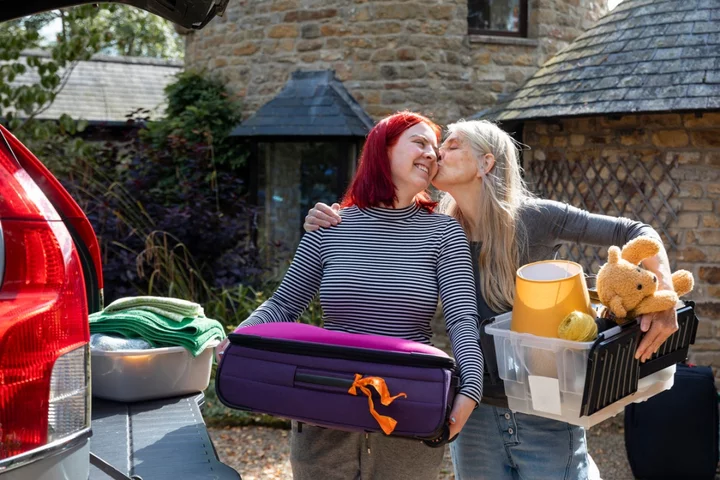
Nearly a fifth of parents fear children will ignore health issues while at university
Nearly a fifth of parents fear their teenager will ignore a health issue while at university, as many self-diagnose on Google, research has found. Just 13 per cent of the 2,000 parents polled think their son or daughter would consult a proper doctor as soon as they feel unwell. More than one in 10 (12 per cent) think their offspring would be too lazy to seek medical attention, and 11 per cent fear they do not make their health a priority. The study of parents whose children either attend university, have done in the past or plan to soon, by Bupa Family+, also found that many (53 per cent) said their child thinks they are ‘invincible’ and nothing bad will ever happen to them. And as thousands of students prepare to start university, 56 per cent of parents feel excited for their child while 41 per cent are anxious. Dr Naveen Puri, GP and spokesperson for Bupa Family+, which commissioned the research to support the launch of its Family+ insurance proposition built around savings on health insurance for families, said: “All parents worry about their children, whatever their age. “But it can be especially difficult when they move out for the first time and become more independent – and you are no longer nearby to help them. “As a child and even a young adult, when you are unwell or have a health issue, your parents are often your first port of call, or even the ones spotting something is wrong in the first place. “They are usually the ones pointing you in the right direction, sorting appointments and arranging medication you might need. “Moving out or going to university is both an exciting and daunting time for all the family and we hope our new Family+ cover, which also insures older children, will help provide peace of mind to parents and their children alike.” It also emerged that parents’ top fears for their children as they embark on life away from the family home include their financial situation (44 per cent), their mental health (43 per cent), and whether they will be lonely (43 per cent). Others worry about who they will be spending time with (31 per cent), if they’ll know how to look after themselves (32 per cent) and what they’ll do when they feel unwell (23 per cent). And 64 per cent of those who have a child who has already left home admitted they have even lost sleep worrying about them. It emerged that 55 per cent think they would still be the first port of call for help or advice if their child felt unwell despite no longer living under the same roof. Ahead of them moving out, 63 per cent of parents will teach them how to manage their finances, while 59 per cent give tips on how to cook healthy meals. Others show their child how to use a washing machine (56 per cent), how to drink responsibly (40 per cent) and how to deal with mental health concerns (43 per cent). The study, carried out via OnePoll, also revealed girls are considered more likely to take care of their physical (43 per cent) and mental (41 per cent) health than boys (13 per cent and 11 per cent). Dr Naveen Puri, GP and spokesperson for Bupa Family+ said: “Our health is so important, and it can be worrying for parents that their child may be unwell when they aren’t there to help. “Making sure they have the knowledge about what to do in different health situations is a great way of not only ensuring they can look after themselves but also allows you to relax a little knowing they have the tools they need.” Here are the top reasons why parents worry their child would ignore health issues: 1. Googling and self-diagnosing 2. Being too lazy 3. Health is not a priority 4. Embarrassed to talk about their health 5. Worried a GP would judge them Read More ‘It can be hard when your kids leave the nest,’ mother says as study finds parents want their children back How to cope with anxiety during university How often should you wash your pyjamas? ‘My baby’s blue eyes drew praise – but their colour was a warning sign’ Brits get itchy feet in their home after five years, study finds
2023-09-19 22:22

How often should you wash your pyjamas?
We all have our favourite pair of PJs we come back to – time after time. Some of us may even have special pyjamas for lounging around in and feeling comfy when snuggled up with Netflix on the sofa. But because they’re only worn inside the house and for sleeping (well, most of the time), the rules can seem different when it comes to PJ maintenance. So, how often should we be washing them and switching to a clean pair? Do you need to wash your pyjamas daily? “You might be surprised to know the answer is no!” says cleaning and laundry expert Laura Mountford, author of Live, Laugh, Laundry. “Like all of our clothing, many of us may be guilty of washing our pyjamas too frequently, or perhaps not enough. But in reality, pyjamas should be washed after every two or three wears. Washing them after every wear, unless they are actually stained, smelly or sweaty, is unnecessary – a waste of money, water and energy,” Mountford adds. She suggests pyjamas can be left to air between wears, and this should be sufficient for them to freshen up ready for the next night – so putting them under your pillow probably isn’t the best idea. Should you wash them more in the summer? “I wash my pyjamas more in the summer when the nights are hot,” says Mountford, “as sweat can cause bacteria growth, which will make them smell. And nobody wants to snuggle into bed in sweaty pyjamas, do they?” What’s the most hygienic way to wash your pyjamas? Sophie Lane, product training manager at Miele GB, says: “Wash pyjamas at the highest temperature the fabric can cope with – check the garment care label. This will deliver the most hygienic clean. Detergent is also important to achieving good results.” Are different materials more or less hygienic? Natural fabrics like cotton are the most hygienic, suggests Mountford, as they are breathable, so bacteria and sweat builds up less quickly compared to manmade fabrics like polyester. Lane agrees, adding: “Cotton is also extremely durable and can withstand high temperature washes. Bamboo is another good fabric option for pyjamas. It’s very breathable whilst being effective at thermal regulating, to keep you warm in the winter and cool in the summer. It’s also anti-bacterial, hypo-allergenic and odour-resistant.” What happens if you don’t wash pyjamas regularly? Mountford says: “Most of us wear our pyjamas for eight hours each night, so not washing them frequently enough can cause bacteria to grow, making them smelly and unhygienic… not very cosy at all. This may reduce the quality of your sleep,” she adds – noting it could result in “skin irritation” too. Does it make a difference if you shower before bed or in the morning? “Showering before bed keeps your pyjamas and bedding fresher for longer, as you are jumping into bed with a clean body, having already removed the dirt, bacteria and allergens from the day,” says Mountford. “Not showering before bed will cause these particles to be transferred onto your nightwear and bedding, which will cause them to get dirty and smelly more quickly.” Read More Charity boss speaks out over ‘traumatic’ encounter with royal aide Ukraine war’s heaviest fight rages in east - follow live Beginner’s guide to buying second-hand furniture These are the best shorter daffodils to plant now for spring – according to RHS trials Do I need to treat my garden furniture before storing it for winter?
2023-09-19 15:59
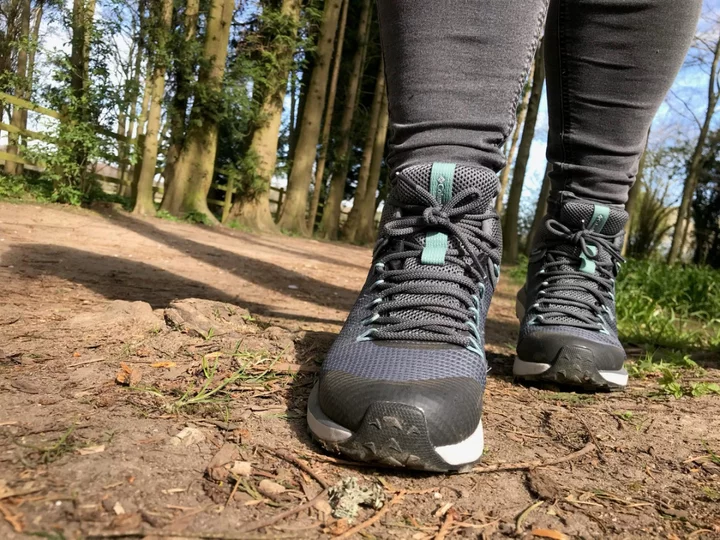
Tried & Tested: 5 summer walking boots
Whether you’re after waterproof walking, springy strolls or harder hikes and punishing treks, there are plenty of boots out there which will be a perfect fit this summer. Take a look at five we tried out, to help you put your best foot forward on a summer staycation. Berghaus Women’s Expeditor Trek 2.0 Boots (£99, tiso.com) Key features: No wearing in needed, thanks to super cushioning from the EVA midsoles and OrthoLite footbed. Their split suede upper, robust, grippy soles and all-round performance makes them good value for money. They were also the easiest boots to get on and off, with a wide entry point. Verdict: These snug-fitting – but comfy – walking boots pack a punch for the price and I did a five-miler straight from the box and didn’t suffer any ill effects around the toes or the ankles. They are reasonably lightweight and fairly generous width-wise, although I could feel a slight pinch point mid-foot by the end of the first walk, which evened out the more I used them. The grip is sufficient for tricky hills and they are also waterproof, although I suspect you won’t do the suede upper any good if you’re traipsing through boggy puddles. On the whole, a great all-rounder for the price. Columbia Women’s Trailstorm Mid Waterproof Walking Shoe (£90, columbiasportswear.co.uk) Key features: Their weight – just 290g. Their versatility and good looks mean they wouldn’t look out of place under jeans, if you’re doing a short amble with a stop-off at the pub, or some easy sightseeing en route. Verdict: These super-lightweight boots – which are actually billed as a walking shoe but have some ankle cushioning – are a cross between a sturdy trainer and a light walking boot. They have the comfortable springiness of a trainer – which is great for walking on dry ground – while the grip will hold you steady on more rocky terrain. They are waterproof, withstanding a bit of summer rain, but I wouldn’t be taking them into boggy winter conditions any time soon. They’re ideal for summer, when you don’t want heavy boots for meandering along easy country paths and green fields in the sunshine. Get a size up from your regular shoe fitting and you’ll do miles in total comfort. Helly Hansen W Switchback Trail Helly Tech (£120, hellyhansen.com) Key features: Their toe and heel caps keep your feet secure and protected, they’re fully waterproof and feel sturdy, despite being relatively light. Verdict: These are impressively sturdy boots considering how light they feel, definitely not an enhanced trainer but with an understated, stylish look, which would appeal to both younger and older walkers. During a 10-miler across mixed terrain, they had a sure grip providing stability on rocky, unstable downhill slopes, while the cushioning on super hard surfaces made you feel like you were walking on cotton wool. Get yourself a size up if you want to wear thick socks with them in the winter, but the spongy, comfortable materials used around the ankle and the tongue should assure you of a blister-free trek. Merrell Moab Speed Mid GORE-TEX (£135, merrell.com) Key features: The mid-sole has extra cushioning, which protects the balls of your foot, along with a ‘rockplate’ which helps reduce the impact of unforgiving sharp rocks or stones underfoot. Verdict: With a Gore-Tex lining you can count on, I yomped through muddy fields and shallow puddles and stayed dry – it’s worth paying an extra few quid for the knowledge you won’t be squelching in your boots. In our unpredictable British summers, though, you want plenty of breathability which these boots have in spades. After trying them out on a warm spring day in thin socks, my feet emerged as dry as a bone. Eco-warriors may be impressed with the 100% recycled laces, which didn’t feel flimsy, the recycled mesh lining and 30% recycled rubber in the outsole. AKU Alterra Mid GTX (£229.90, aku.it/en) Key features: The outer sole and impressive grip helps prevent you stumbling on rocky, uneven ground, while there’s excellent protection around the ankle, yet it still feels spongy and comfortable. Verdict: The Italian specialist brand Aku says these sturdy boots are designed for medium terrain and longer rambles over mixed ground, but these were by far the toughest boots, with such impressive grippy soles that I think they’re just as suitable for winter walks. They may be a little extravagant – and a bit heavier looking – for easier summer rambles, but if you’re a hardcore hiker with aims of climbing challenging peaks this summer, these are just the job. And right on cue, Aku has brought out a new lighter weight version of the same boot, so look out for the Alterra Lite Mid GTX. Read More Charity boss speaks out over ‘traumatic’ encounter with royal aide Ukraine war’s heaviest fight rages in east - follow live Do I need to treat my garden furniture before storing it for winter? Prince William heads to New York for UN General Assembly climate week event London Fashion Week: Jourdan Dunn walks in emotional Richard Quinn show
2023-09-18 23:45
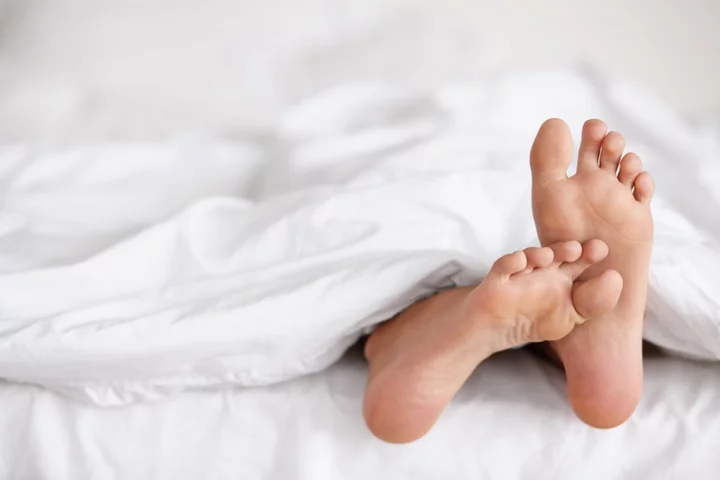
Brits get itchy feet in their home after five years, study finds
The average Brit starts to get itchy feet in their home after five years, a study has found. Researchers revealed after living happily in their homes for years, the five-year-itch hits, resulting in property owners browsing websites and estate agent windows for their next buy. Looking online at property websites (59 per cent) and taking an interest in ‘for sale’ homes in your neighbourhood (32 per cent) are the major tell-tale signs people are considering a move. And 31 per cent admit thinking about what they can do to get their home ready to sell (31 per cent) is another indication they’re ready to make the switch. Anthony Ward Thomas, of Anthony Ward Thomas Removals, which commissioned the study of 2,000 adults, said: “Moving can be a challenging task, but it doesn’t need to be. “It’s not a surprise for 54 per cent of people, cost is the most important factor when making a move.” The research, carried out by OnePoll, found Londoners get itchy feet the quickest of any region – as they want to move less than four years in. Those in the capital aren’t as willing to stay put in their property either, as they said they could stay at their current home for another seven years at a push – compared to those in the East Midlands who would live at their current abode for more than 13 years. Other top signs people are looking to move home include getting fed up with the neighbours (24 per cent), not having enough storage space (23 per cent) and no longer enjoying spending time in your home (22 per cent). However, one of the major factors putting people off moving was the thought of shifting their stuff (55 per cent). Despite this, only 43 per cent of people who moved home previously said they used a removal company to help them. Yet 59 per cent said if they were to move now, they’d get outside help from a specialist – highlighting just how important they are. In fact, a staggering show of support, 92 per cent of those who had used a removal company said they would use one again. Among the major benefits included not having to do the heavy lifting (62 per cent), being less stressful (50 per cent) and having one less thing to worry about (45 per cent). Others included saving time (42 per cent) and not getting injured lifting heavy things (40 per cent). Anthony Ward Thomas added: “As our results show, one of the major factors which puts people off moving is having to move their belongings. “Using a professional company to help you pack up, move out and move in buys you peace of mind. “It should be any delivery firm’s number one priority to ensure every single item is looked after as if it were their own and to care about every move.” FIVE TELLTALE SIGNS YOU’VE GOT ITCHY FEET: Looking online at property websites Taking an interest in ‘for sale’ signs in your neighbourhood Getting fed up with the neighbours Not having enough storage space No longer enjoying spending time in your home TOP 5 TIPS FOR MOVING HOME, FROM ANTHONY WARD THOMAS: Make a move plan – include all tasks on it and assign them to people and/or companies helping you Clear the clutter – give yourself 5 categories: keep, sell, bin, store or giveaway Hire professionals – don’t cut costs and do a DIY move, it pays to have peace of mind Pack from the top down – start at the top and work downwards, labelling your boxes with what’s in them, where they’ve come from and where they’re going to Box of essentials – from a kettle, mugs and coffee to bedding for the first night and the kid’s iPads, pack up useful items in one box. Read More What is Cheese-pulling? New world record set for highest pull Zombie ant parasite is ‘even more cunning’ than previously thought, scientists say NASA astronaut Frank Rubio breaks US record for longest spaceflight Mother explains decision to breastfeed her four-year-old son ‘My baby’s blue eyes drew praise - but their colour was a warning sign’ What the world’s happiest children tell us about where Britain is going wrong
2023-09-18 23:24
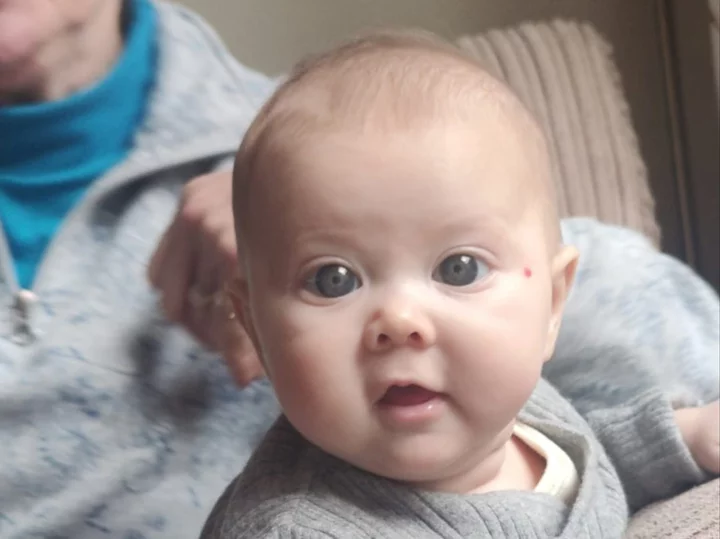
‘My baby’s big blue eyes drew endless compliments - but they were the sign of a life-changing condition’
A baby’s “beautiful big blue eyes” which were complimented by everyone - turned out to be a symptom of a condition causing blindness. Louise Bice, 34, was stunned when her daughter, Aretria, was born with big blue eyes - a trait nobody else in the family had. Her “beautiful” eyes would see the tot complimented “six or seven times every day” by strangers - which Louise loved. But at six months old, in May 2023, one of Aretria’s baby blue eyes turned “milky” and any light caused the tot to scream in pain. Louise and her partner, Connor Bice, 29, a chartered accountant, thought their youngest daughter might have hit her eye with a toy. But the family were told Aretria - now 10 months old - had a severe case of bilateral congenital glaucoma, a genetic abnormality which saw extreme and growing pressure on the optic nerve. Her much-loved big eyes actually required urgent surgery. Tiny Aretria had a four-hour operation at Birmingham Children’s Hospital in June to relieve the pressure - but follow-up tests showed it had failed. She had a second surgery in August and her parents are awaiting the results - although the tot has lost almost 100 per cent of her vision in one eye already. Mum Louise wants to warn other parents to look for the symptoms - and to not assume big eyes are “beautiful” when they could be a sign of something more serious. Louise, a stay-at-home mum, from Mansfield, Nottinghamshire, said: “I never expected Ari’s big, beautiful eyes to be a bad thing. “Suddenly one day her eye clouded over - one minute it was fine and 15 minutes later it was completely changed. “Specialists had to do horrific tests on her and I learned she had already lost some vision in both eyes. “After two surgeries we still don’t know what will happen - she already has just five per cent vision left in her right eye. “She’s in so much pain and I don’t know if she can cope with another surgery. “I just think if we had managed to get this diagnosed before the pressure got out of control, she might not now be blind in one eye. “If someone had said it was weird, she had big eyes rather than cute we might have got it checked - but none of us knew it was even a red flag.” After Aretria was born on October 20, 2022, her big eyes became a source of many compliments from friends and family. Her parents even lovingly likened their little one to a cartoon bug, thinking nothing of it. Even doctors and health visitors thought they were sweet - and nobody mentioned any risks. But on May 20, Louise popped to the shop and when she returned 15 minutes later one of her daughter’s eyes was clouded. Louise said: “Connor sent me a picture that morning of the two of them together while I was out and her eyes were fine. “When I got back her right eye had clouded over. “I hadn’t even got through the door when I said ‘we need to take her to A&E right now’.” They went to their local hospital, King’s Mill, Mansfield, then were sent to Chesterfield Royal Hospital, Derbyshire, where doctors identified the high pressure but couldn’t work out why it was happening. They were then booked in to see specialists at Queen’s Medical Centre, Nottingham, two days later on May 22. Aretria’s condition was finally diagnosed - as bilateral congenital glaucoma - and even the specialists said they’d only seen a handful of cases. Medics explained the little girl needed surgery but warned even then, she’d be left with little vision in her worst eye because the damage had already been done. Louise said: “Doctors said she had been exposed to high eye pressure from birth because her fluid drainage system didn’t form properly in her eye when she was still in the womb.” A surgery was scheduled at Birmingham Children’s Hospital, West Midlands, for June 13 which saw the tot go under the knife. The four-hour procedure was followed by a month of eye drops six times a day as well as having protective eye shields taped onto her face for a week. Louise said: “We didn’t get any sleep for about a week after and hoped that would be the last of it. “But two weeks later when we went back for her post-op, the pressure readings were even higher than before. “The operation had failed - and she would need more surgery.” A second operation was done on August 18 - and it was again followed by a gruelling recovery for the tot, who couldn’t understand why any of it was happening. They’re still waiting for official results, but signs so far suggest the surgery may have been unsuccessful for a second time. Louise said if that’s the case, medics will move on to a different kind of surgery to release the pressure involving drainage tubes or valves. She fears the tot “might not cope with another surgery” - but they may not have a choice. While Aretria’s vision is virtually gone in her right eye, her left eye is compensating - although Louise and Connor fear the vision will worsen in her good eye too. Louise wants to warn parents to look out for the symptoms - even if they might not seem sinister. She said: “Before, she used to get compliments about her eyes six or seven times a day. “Now I just feel really awkward when people say it. “Aesthetically it might be, but having these big, beautiful eyes isn’t always a good thing. “If we knew that before, she might not be blind in her right eye now.” Read More GoFundMe for actor blinded in attack over Covid mask tops $15,000 He couldn’t see his wedding. But this war-blinded Ukrainian soldier cried with joy at new love A camp teaches Ukrainian soldiers who were blinded in combat to navigate the world again ‘Millions of women and girls suffer severe pain’ during periods – research finds Miriam Margolyes jokes that her ‘longing for fudge’ caused her health issues 5 things everyone needs to know about eczema
2023-09-18 18:25

Border authorities separated some migrant families amid overcrowding in facilities, report says
US Border Patrol separated some migrant children from their parents while the families were in custody amid overcrowding in facilities, according to a Friday court filing.
2023-09-17 04:56
